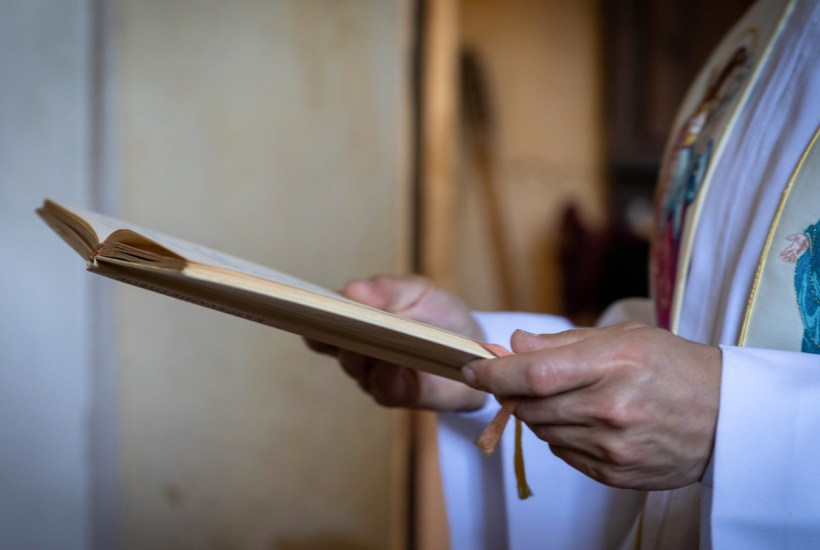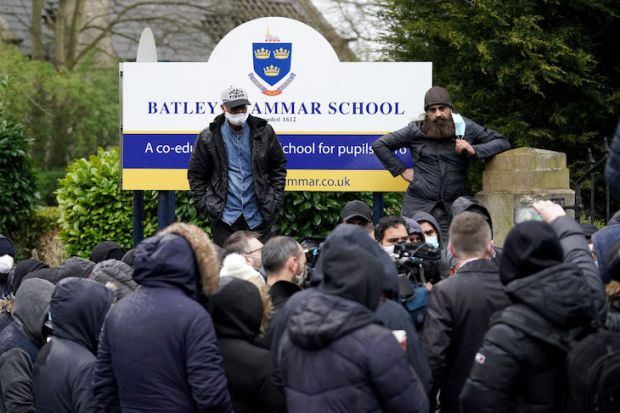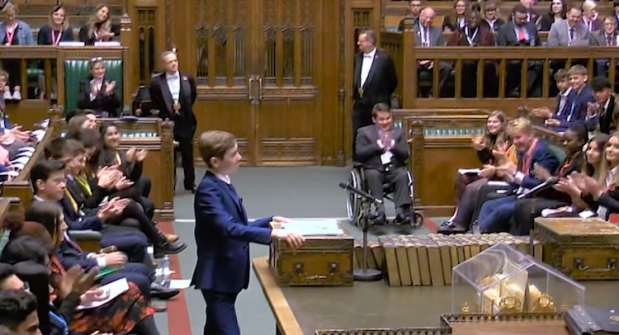Mary Wakefield’s piece in today’s magazine – How the Catholic Church betrayed the dying – is right and eloquent in pointing out that there were Catholics dying in hospital from Covid who weren’t given the last rites for the absolution of their sins and the viaticum, the eucharist or food for the last journey. It is the least the Church can do for the faithful: to give them absolution of their sins at the last.
However, in giving the bishops a very needful rebuke, she perhaps didn’t have space to do justice to the work of priests on the ground and in hospitals. I have one friend who’s a chaplain in Dublin who’s been working throughout the pandemic – he’s been there for patients, for comfort, prayer, and confession when their families couldn’t be. Many chaplains in British hospitals have also continued to work, within the guidelines she talked about. The Vatican moreover issued an indulgence – one of those things that non-Catholics find particularly odd, not to say, risible – a remission of sin for people who wanted to go to confession and simply weren’t able to (call it a plague indulgence).
I was, in fact, so taken by Mary’s trenchant argument, I sent it to a priest friend of mine, who did attend the sick during the crisis, and this is what he wrote in reply:
‘Sadly there is a lot of truth in the Wakefield piece. Having said that, priests were very willing to go into hospitals but the two pronged defence of the Bishops and hospital authorities prevented us from going in.
Interestingly she asks “Has any single NHS hospital ever contacted the Catholic church to complain about the presence of chaplains? I’d love to know.”
NHS bosses don’t complain; they simply remove the funding for a hospital Roman Catholic chaplaincy, or if they do employ chaplains, they pay exorbitant salaries to the Anglican Chaplains or they fund the local Imam, so that they can demonstrate cultural awareness and diversity in their non-medical provision within the hospital.
In short it’s a mess and a long way from the example set by St John Southworth, the plague priest who ministered in the streets of Westminster in the sixteenth century.
I felt particularly aggrieved… after all, what’s the point of depriving yourself of the comfort of family life, if, when you’re needed, you can’t fulfil the role which the freedom of celibacy gives you.’
He’s right.
Got something to add? Join the discussion and comment below.
Get 10 issues for just $10
Subscribe to The Spectator Australia today for the next 10 magazine issues, plus full online access, for just $10.




















Comments
Don't miss out
Join the conversation with other Spectator Australia readers. Subscribe to leave a comment.
SUBSCRIBEAlready a subscriber? Log in